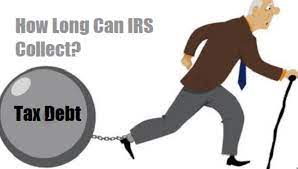COLLECTION STATUTE EXPIRATION DATE
Collection Statute Expiration Date – CSED
If the IRS does not collect the taxes within ten years form the date of assessment, then the tax is abated and liens are released against the taxpayer’s property. If you have several years that you owe on, it is advisable to designate your payments when possible to the most current years rather than to older years that may be close to expiring. The IRS, without designation from the taxpayer will always apply payments to the oldest debt. In most cases the IRS will apply voluntary payments to the oldest tax debt regardless of any designation made by the taxpayer.
There are some actions by the taxpayer that can extend the CSED. The most common are a pending bankruptcy, a judgment or litigation in tax court, a collection due process appeal, a pending offer in compromise or when the taxpayer voluntarily signs a waiver extending the collection statute.
If you think your tax debts have expired we can confirm this verbally and in writing from the IRS. This inquiry if done correctly does not need to wake up a “sleeping giant.” Most taxpayer are under the false assumption that once you owe the IRS the debt will stay there until fully paid. State laws differ from the IRS. Some states have no expiration dates on tax debts. If you are uncertain as to your tax debt status, especially those that might have expired, we can help you get a confirmation and clear up tax liens that will likely still be marks against your credit.
Scott Allen E. A.
Tax Debt Advisors, Inc.


